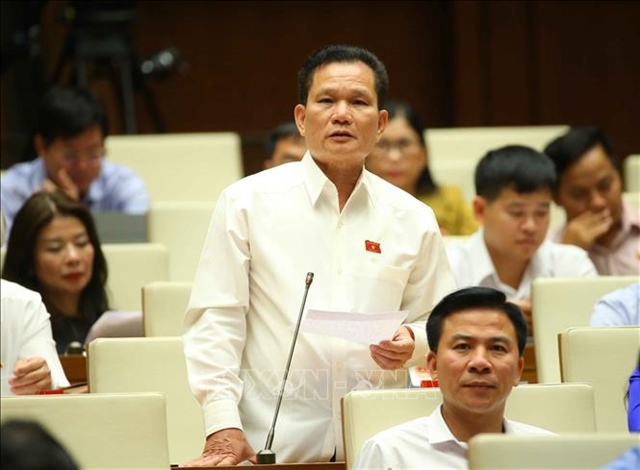 Society
Society


|
Bùi Sỹ Lợi, vice chairman of the National Assembly’s Committee for Social Affairs talks to Thời Báo Kinh Tế Việt Nam (Việt Nam Economic Times) about enterprises with social security debts and solutions for the issue.
According to a Government report at the 14th National Assembly’s seventh meeting, by October 2018, the total social security and health insurance premium debts owed by enterprises which went bankrupt, stopped operations or have foreign owners who have fled the country reached more than VNĐ1 trillion (US$43.5 million). Nearly 60,000 employees have unpaid insurance premiums. Why does this issue persist?
I think there are many reasons.
There are no regulations mentioned in the Bankruptcy Law and Enterprise Law on how to deal with bankrupt businesses in case their legal owners are not present or flee the country.
Punishments on businesses which fail to follow bankruptcy regulations are not strict enough.
The Law on Investment also does not clarify how to deal with assets of businesses which went bankrupt or have owners who have fled the country.
The courts are in charge of dealing with social security violations, therefore, they will not settle lawsuits against businesses which are slow to pay, evade or appropriate social security insurance premiums.
There has been no instruction on how to start legal proceedings against slow payment, evasion or appropriation of employees’ social security premiums.
According to Item 7, Article 10 of the Social Security Law 2014, the Minister of Labour, Invalids, and Social Affairs is responsible for submitting to the Government for decision handling measures in cases of protecting employees’ legitimate rights and interests related to social insurance. But this regulation seems not to have been implemented so far. What is your opinion on that?
I have to say that labourers’ rights are not fully ensured in case enterprises go bankrupt, have their business licences revoked or foreign owners flee.
The Government has assigned the Ministry of Labour, Invalids, and Social Affairs to work with relevant agencies to study and propose measures to ensure labourers’ rights. But this process has encountered difficulties because Vietnamese laws on social security, employment and State budget, and international practice do not mention in detail how to deal with these cases.
What should we do to ensure rights of employees working for enterprises which went bankrupt, stopped operation or have owners flee?
The Government should order ministries, sectors and localities to take measures to ensure businesses follow social security law and avoid slow payment or evasion of social security and unemployment insurance.
The Việt Nam Social Security (VSS) must continue to set up a mobile phone search engine which provides data on social security to employees.
Competent agencies and local people’s committees need to issue disciplinary warnings and forward files of violations to police for further investigation and criminal prosecution if necessary.
The National Assembly should assign the Ministry of Justice to review legal documents related to bankruptcy and a resolution to deal with bad debts of credit institutions. The regulations should prioritise dealing with social security insurance, health insurance, wage and redundancy payment debts.
The VSS needs to review the number of employees whose rights are affected by the bankrupt businesses in order to have a general impact assessment of the problem. VNS




